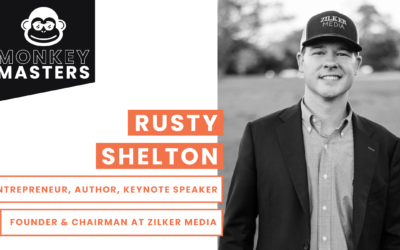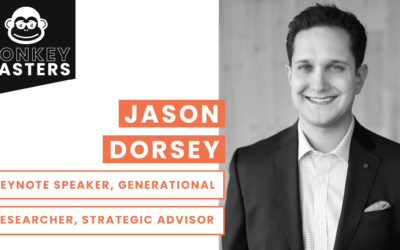When you’re a CEO, you have countless things to do every day. You are always pressed for time, you’re being pulled in a million different directions and you’re hyper-focused on growth. So you have to prioritize these never-ending tasks, and it’s only natural that tasks with *seemingly* little value-add get pushed to the bottom of the to-do list. Frankly, that’s how I used to feel about my Board of Directors.
I felt it was a ‘necessary evil’ of my new gig as CEO: one that I knew I had to eventually deal with, but felt wasn’t going to be instrumental in helping my company. I didn’t get much insight from them when we met so why should I dedicate any of my already-sparse time investing in a relationship with them, right?
Wrong. I was very wrong.
One, simple conversation with a mentor led me to realize that a Board can be the pivotal difference between success and failure during your entrepreneurial journey. You will be tempted to de-prioritize your Board in lieu of other initiatives that seem more important, and frankly are more enjoyable. Resist that temptation. You just have to take a step back and learn how to handle them and their expertise in the context of you and your company’s goals.
Before I divulge the conversation that changed my perspective on my Board, let me assure I was making classic ‘founder moving to CEO’ mistake.
For the first few years I was running my company, I didn’t really engage my Board in a strategic manner and kept most of the meetings high-level, making sure that I had every question answered before I even walked into the boardroom. I would fill my Board decks with pages of details on topics I knew I felt were solid, preventing any sort of critical discussion from materializing.
I wasn’t trying to hide anything, I just wanted to ‘check the box’ of my Board meeting as quickly and painlessly as possible because I didn’t understand how to get much from them – individually or collectively. I was treating my Board as an overlord that needed management instead of an arrow in my leadership quiver, and my frustration grew after every Board meeting when I realized these meetings were often interesting, but never compelling.
Although the change in how I approached my Board did not happen overnight, I owe a debt of gratitude to one of my best Board members, Bruce Dunlevie, founding partner of Benchmark Capital, the preeminent venture capital firm in Silicon Valley. Bruce could see what was happening from a mile away – he had seen so many other entrepreneurs fall into this trap – and he could empathize with me and my effort to deal with a powerful Board.
So after one particularly frustrating meeting, he pulled me aside and asked me one critical question that changed how I viewed my relationship with my Board by focusing on what I now call the: ‘Entrepreneur-Board Information Gap.’ He asked:
‘Mike, does anyone on the Board know as much as you do about your business? Seriously – how big is the gap between what you know about the operations versus what the Board even understands about the business. Have you taken this gap into consideration when building the Board agenda and supporting materials?’
As I reflected on this question – keep in mind, reflecting on questions like these is not a natural exercise for most entrepreneurs – I quickly noted that I spent at MINIMUM 80 hours a WEEK thinking about my business, while my average Board member thought about the same topic for AT MOST 40 hours a YEAR. This is a HUGE discrepancy, and noticing this delta – this gap – is probably the most important realization for any entrepreneur managing their relationship with their Board, setting an appropriate agenda or building a compelling Board deck.
Simply put, the biggest mistake most entrepreneurs make when working with their Board is not minding the information gap: the Entrepreneur-Board Information Gap, let’s call it ‘EBIG.’
The EBIG dictates one, simple rule: don’t attempt to get your Board up to the same level of understanding as yours, rather, use this information gap to your advantage. That is, being aware of the EBIG and how to leverage it becomes the key to turning your Board into one more arrow in your quiver that will help you build an amazing business.
One specific way that minding the EBIG changed my approach to my Board was learning to strike a balance in my Board materials that was a good mix of key operational updates and open-ended strategic discussion. You will be amazed at how much you can get out of your Board in short order when you stop spending all your time trying to get them up to speed, or wasting time prepping abundant Powerpoint slides in an attempt to answer every question in advance of the meeting.
For instance, I used to spend 90 minutes of a four-hour Board meeting – and hours of prepping the meeting – providing an ‘executive summary’ of the current state of operations of my global business. I thought: How could they really give me any feedback if they didn’t thoroughly understand the state of the business that I worked with every day? But then I thought of the EBIG.
My Board of seasoned executives wasn’t there to dive into the details of the operations. That was a waste of their valuable time, and a waste of mine. They didn’t need those details to understand the big picture of the business and provide me with the high-level insights I was desperately seeking.
Instead, after Bruce’s invaluable feedback and direction, I modified my typical 15-page ‘executive summary’ down to one slide. This slide had three sections: 1) what’s working, 2) what’s not working and 3) implications (of both). This one-page slide served as the springboard for repeatable, meaningful and open-ended Board discussions thereafter.
So no matter how busy you get, or how much is on your plate as a CEO and entrepreneur, remember that working with your Board is a non-negotiable part of your job description and a necessary component to making your company successful. So don’t resist their feedback. Instead, take a step back, reflect on where you could use input and present it in a way to make that easy – or as I like to say: mind the EBIG.


